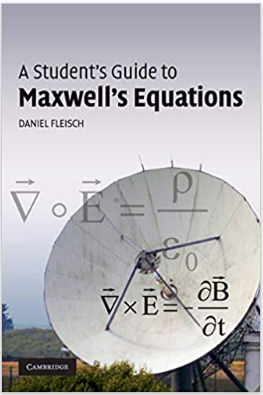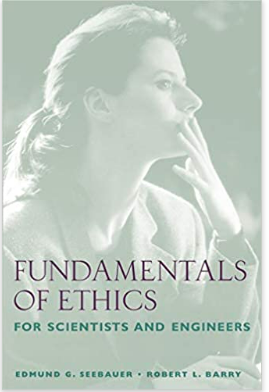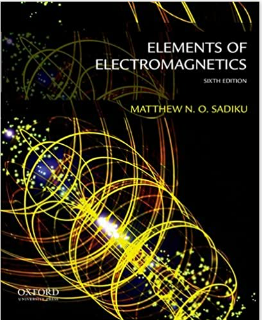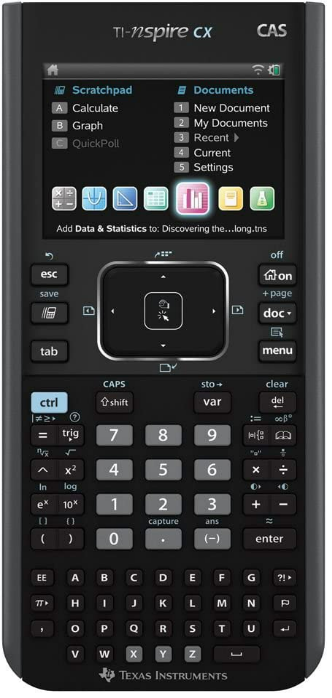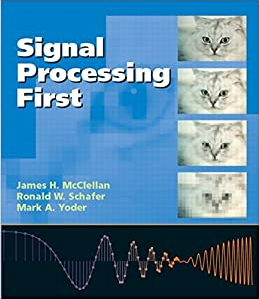Here you will find things about fitness and nutrition, mainly (but not exclusively) in relation to the Beachbody programs like P90x and Insanity. And, I will start adding reviews for Books, DVDs and Blu-Rays, and other products. All views and opinions on this blog are my own.
Welcome
Welcome to my ever-evolving blog. It started out as a blog on Beachbody workouts and products, mainly when I was a Beachbody coach. I no longer coach, not because I don't believe in Beachbody's programs (I subscribe to Beachbody on Demand and use their workouts every day), I am just not a salesperson and hated that aspect of it. I am more than willing to answer questions about my experiences with their products and the various workouts, and I feel freer to do so without the appearance of giving a biased review of something.
I have also started adding reviews for various things I have purchased like movies, books, CDs, and other products. This was brought about by a fight with Amazon in which all of my reviews were removed over a completely bullshit allegation that I posted a review that violated their terms of service. After going back and forth with the morons in the community-reviews department (even after they admitted that my posts did not violate their guidelines) they restored my account (which took them six months to do), but I have been posting my reviews on my blog to have them preserved in case something like that happens again. And here, I will post uncensored reviews so I will swear from time to time and post reviews that may be longer than Amazon's character limit. Everything I post here on any topic or product is my personal opinion, and I take no compensation for any product reviews I post. I am a member of Amazon's vine program and because I get those products for free, I keep those reviews on Amazon only, but everything I have purchased with my own money, whether from Amazon or some other store/website/outlet, I will post here.
I also plan to do some longer blog posts on various topics, such as how to learn physics, how to get through calculus, and longer reviews of workout programs as I do them. Basically, whatever strikes me as interesting at the time. As you can see if you navigate around the blog, I had many years in between postings. During that time I was going back to school to get an engineering degree, and learning material that I avoided my first time through college was a different experience and one that gave me a lot of insight into how to do well in those classes, which I will try to impart here for those who are looking to get a science or engineering degree.
Monday, October 17, 2022
Textbook Review: Radio Astronomy
Thursday, October 6, 2022
Study Aid Review: A Student's Guide to Maxwell's Equations (Student's Guides) 1st Edition
This is a small book (about 130 pages) that covers all four equations, one per chapter. That breaks down what each equation represents and what the variables in the equation mean and provides both the integral form of the equations and the differential form. I think the best way to use this guide is to supplement your textbook material so that when you get to the point in the textbook where one of the equations is discussed, use this to flesh out the theory behind the equations that your textbook may not cover (or cover in as much detail). To be clear, this is not something like "Maxwell's Equations for Dummies" or something like that, which assumes you have little to no background going in. You do need to have some understanding of calculus (if you have taken multivariable calculus, that will definitely help because there is a lot of discussion of surface integrals and vectors), and know some of the physics concepts you will learn before getting to the electricity and magnetism topics (which is covered in the second semester of physics). So, if you are taking calculus-based physics and/or have to take an electricity and magnetism class (electric and magnetic fields) as a part of an engineering program, this will be very useful. It is probably overkill for those who just have to take algebra-based physics because it will go way beyond what you will be exposed to in class or expected to learn.
Wednesday, October 5, 2022
Software Review: MATLAB & Simulink Student Suite
Monday, October 3, 2022
Textbook Review: Radar Systems Analysis and Design Using MATLAB 3rd Edition
Book Review: Fundamentals of Ethics for Scientists and Engineers 1st Edition
Realistically, this is probably a book that someone is only going to read because they have to do so for a class. If you can get a used version, I would do that because it is definitely not worth more than about $20, but the price to purchase it new gets jacked up because it is technically a textbook.
Saturday, September 24, 2022
Product Review: uxcell 100 Pcs 10K Ohm 3% Temperature Measurement NTC Thermistors
Friday, September 23, 2022
Study Aid Review: Schaum's Outline of Electromagnetics, 4th Edition
Thursday, September 22, 2022
Textbook Review: Elements of Electromagnetics 6th Edition
Wednesday, September 21, 2022
Study Aid Review: 2008+ Solved Problems in Electromagnetics
Monday, September 12, 2022
Study Aid Review: Hands-On Introduction to LabVIEW for Scientists and Engineers
It is not a traditional textbook (although it can be used as one), so it has a lot of examples and enough explanation to understand what is going on. It is mainly for beginners to intermediate users, which is perfect for most people who are taking a college course. And, if you get an older version of the book it is much less expensive than some of the other books out there. So, if you are looking for help in using LabView, this is a good resource.
Tuesday, August 30, 2022
Study Aid Review: Engineering Mechanics Statics Tutor - Volume 1
This covers what amounts to the material that is covered in the first 2-3 weeks of statics. The first few lessons are review (a review of Newton's Laws, units, and a review of trigonometry, which is used extensively in Statics), then gets into the material that you will hit the ground with on day 1 of class. The material covered in this set includes adding vectors and resolving forces in two and three dimensions and finding resultant forces, etc., Basically, the material that is the foundation of the class and used in every topic going forward. As I said above, this set does not cover anything close to all of the material that you will see in the full semester. It will basically get you through your first couple of homework assignments and quizzes, but that is about it. But, it is also the material that, if you are struggling with it, you will have no shot at doing well for the rest of the class. So, while it would be nice to have a volume 2 and probably 3 available, this will still help you. I would actually pick this up before you start taking Statics, learn this material backward and forward, and it will set you up well for the rest of the class.
Monday, August 29, 2022
Book Review: Make: Electronics
One thing you will find if you are an electrical engineering student, you learn all this material in class and learn how to draw circuit diagrams, but when you get to the point of doing labs you have no idea how to actually hook up components. If you are taking classes on campus and have a TA right there to help you, it is not a big deal. But, if you are in a distance/online program, you are kind of on your own and it is not something that is completely intuitive. This will help you figure that out. It has a lot of good illustrations and corresponding explanations. So, whether you are a beginner electronics enthusiast or taking actual classes, this will definitely be helpful.
Saturday, August 27, 2022
Study Aid Review: Schaum’s Outline of Feedback and Control Systems, 3rd Edition
This guide is for a control systems class which is a class that pretty much every engineering major has a version of. The chapters are divided up into sections, and each section is enough theory to learn the material and it is presented in a more straightforward and concise manner than the textbook I used. One thing I like is that there is an entire chapter focused on designing control systems, which my professor loved and tested on quite heavily. So, I was able to get a lot of practice with design problems which helped immensely. So, if you are looking for a supplement for a control systems class, this is a good one to use.
Saturday, August 20, 2022
Product Review: Texas Instruments Nspire CX CAS Graphing Calculator
There are a few issues that I discovered along the way. The menus can be a pain in the butt to navigate unless you are using one of the common math functions. For example, the statistics material is hard to find and access. Second, you pretty much have to go to YouTube to figure out how to do things on it because it does not come with a manual that helps at all. And, doing some things like changing from Radian to Degree mode that is relatively easy on TI's other calculators like the 84 plus, and the 89, is tricky on the Nspire. Also, there is a very deceptive mode that is on one of the settings screens that says something like "press to test". At first glance, it looks like it would run some kind of diagnostic on the calculator, but what it really does is put the calculator into test mode which turns off most of the CAS functions, and getting the calculator out of test mode is very complicated, so much so that it is not worth ever activating. Basically, you need access to a second calculator that is not in test mode to connect to and go through a bunch of steps with the calculators connected to each other. So, if your teacher allows you to use the calculator on exams, but only if it is in the test mode, you are far better off using a non-CAS calculator. Also, on some of the derivative and integral solutions, it gives answers that are simplified differently than "normal" so it can be hard to check your answers. That said, one thing it can really do well is triple integrals in which you are integrating over dr, but also have r as a limit of integration. This is something that is done quite a bit in an Electric and Magnetic fields class (if you are an electrical engineering major). The TI-89 will throw an error, but the Nspire can actually calculate it.
Overall, I would say that if you are just taking lower-level math classes, then this is overkill. If however, you are going into an engineering program this will make your life much easier once you learn how to use the functions you need quickly. I cannot really say how it stacks up against any of the other CAS calculators (aside from the TI-89) out there. I know that some people love TI and some people hate TI, to the extent of breaking out in hilariously dumb arguments. But, I can tell you that you will probably not ever use every single operation the calculator is capable of, but if you are in an engineering program, it will help.
Monday, August 15, 2022
Textbook Review: Signal Processing First 1st Edition
Tuesday, July 26, 2022
Study Aid Review: The Laplace Transform Tutor
In this set, Jason introduces the concept of Laplace Transforms, how to derive the basic transforms, then provides a table of transforms (which is generally what you will be allowed to use in class if you need the more advanced transforms). Then he solves a bunch of problems using the Laplace Transforms, including solving several differential equations. As he does in his other math and science sets, Jason goes through everything step-by-step. He does assume that you have the math skills needed to be at this point (so having taken algebra, pre-calc, and calculus I and II). He does not do a recap of the math, but since he rarely skips steps in solving problems (and never does in the first couple of examples he shows on a topic) you do get a bit of a refresher anyway.
Laplace Transforms is a topic that will come up at least a few times depending on what branch of science or engineering you go into. I was an electrical engineering major and I definitely had to use it extensively in one of my higher-level classes and a bit lighter in a couple of other classes. Unfortunately, I did not have a good grasp on the topic after my Calc 4 class (which is where I was introduced to the topic), so I got this to really figure it out. So, if you are a visual learner who learns best by watching sample problems being worked out, this is a great study aid.
Friday, July 22, 2022
Study Aid Review: AC Circuit Analysis Tutor -- Volume 1
As with Jason's other math, science, and engineering DVD sets, Jason explains all the concepts in an understandable way and works through many examples, providing clear, step-by-step instructions for how to solve the problems. He does not cover every single concept you will see in class, but he covers the main concepts that you need to know. So, this is a compliment to class lectures and doing homework, not a replacement for either. Jason explains the material a lot better than many textbooks do, and better than some teachers. So, if you are looking for a good circuits study aid, and you are a visual learner, this is a great option for you.
Friday, July 8, 2022
Circuits 1 Chapter 5 (The Operational Amplifier Terminal Currents and Voltages, Inverting, Summing, Non-Inverting, and Difference Amplifiers) Notes and Examples
Here are the links to the notes and problems for the Chapter 5 material which covers the Operational Amplifier, Terminal Currents and Voltages, Inverting, Summing, Non-Inverting, and Difference Amplifiers.
Textbook Review: Statics (Engineering Mechanics) 13th ed. Edition
How helpful the book will be to you depends on i) how good a teacher you have and ii) the kind of homework problems he or she assigns. Overall, I found that the theory was explained reasonably well, and the examples gave you a good idea of how to approach solving many of the problems in the problem sets. But, as pretty much every math, science, and engineering textbook does, this one does have problems in the problem set that are much harder than the examples in the chapter text. If your professor assigns the harder problems and/or is not easy to follow, you will probably need to get a study guide to supplement the textbook. But, if you have a pretty decent teacher who assigns problems from the chapter that are similar in difficulty to the examples in the chapter text or that are shown during lecture, then the book will give you a pretty good understanding of the material and you can probably understand it without any additional supplements or study guides.
Wednesday, July 6, 2022
Circuits 1 Chapter 4 (Techniques of Circuit Analysis Matrix Math, Node Voltage, Mesh Current, Source Transformation, Thevenin and Norton Equivalent, and Superposition) Notes and Examples
Here are the links to the Chapter 4 materials:

